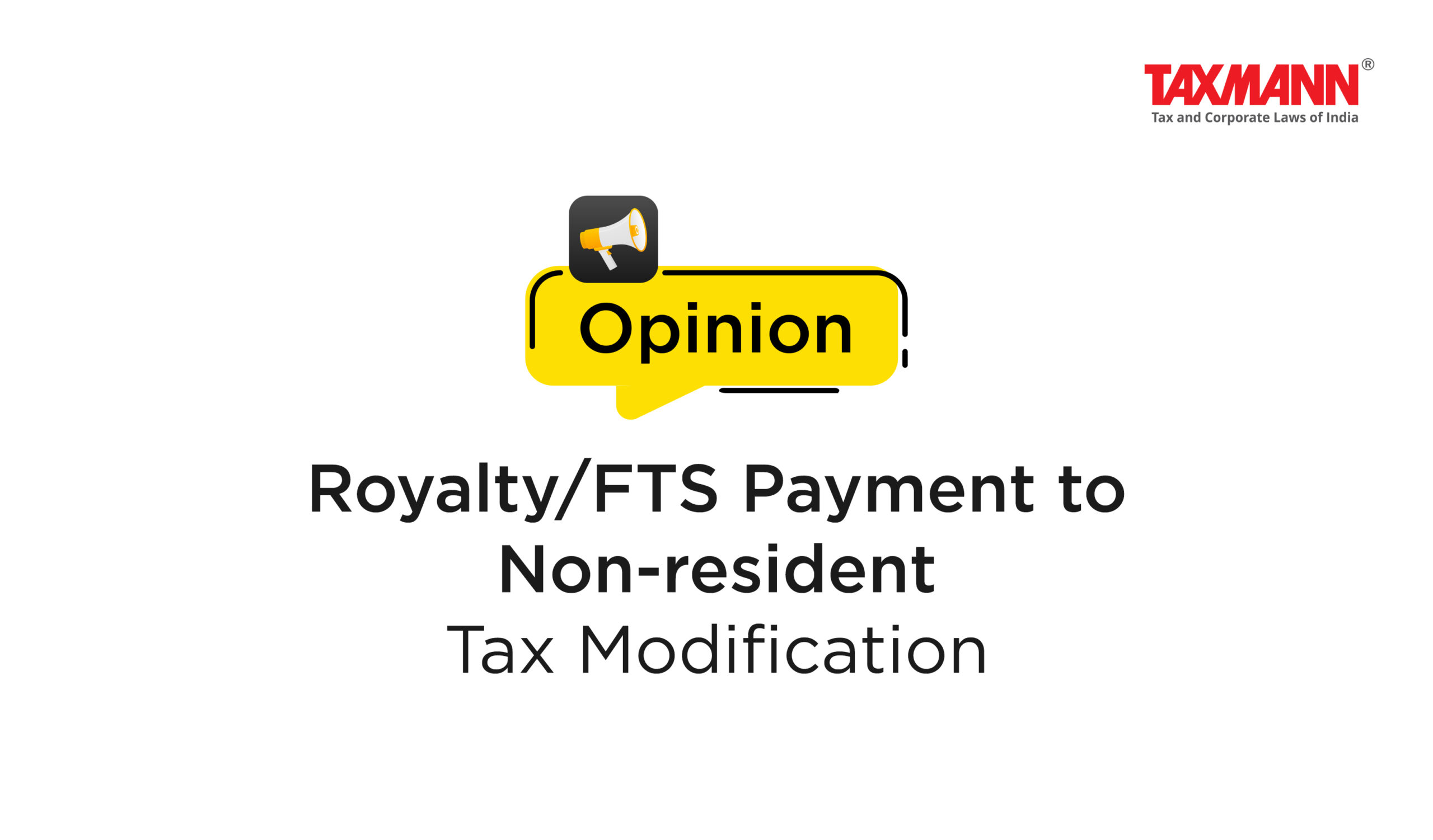[Opinion] Royalty/FTS Payment to Non-resident | Tax Modification
- Blog|News|Income Tax|
- 2 Min Read
- By Taxmann
- |
- Last Updated on 21 June, 2023

Geetika Gupta & Ashish Chadha – [2023] 151 taxmann.com 276 (Article)
The tax rate on royalty and fees for technical services (‘FTS’) along with the withholding tax rate on such payments under the Income-tax Act (‘Act’) has been increased from 10% to 20% (plus applicable surcharge and cess) with effect from 1 April 2024 (i.e., assessment year 2024-25) vide the Finance Act 2023. This is a substantial shift by India in the taxation landscape concerning Royalty/FTS income of non-resident taxpayers from India. This move of doubling the tax rate from the existing rate could bring a dent in the cashflows in the hands of non-residents.
This article analyses the ramifications originating from this amendment, throwing light on crucial points for consideration for non-resident taxpayers to ensure diligent compliance to the updated tax regulations.
The key points for consideration post the amendment made are as under:
1. Benefits of Double Taxation Avoidance Agreements (‘DTAA’)
Section 90 of the Act provides for opting the beneficial tax rate in a case where the transaction is with a tax resident of a country with which a tax treaty has been entered into. Many non-resident taxpayers in the past have been opting for withholding at the rates prescribed under the Act (i.e., 10% plus applicable surcharge and cess), as this provides them an exemption from filing tax return in India.
However, considering the enhanced tax rate of 20% (effective tax rate being 21.84% including surcharge and cess) in the Act, which is higher than the tax rate provided for in majority of the tax treaties, the non-resident taxpayers are now likely to opt for the beneficial tax rate under the DTAAs. The DTAAs commonly provide for concessional tax rates or exemptions for specific income categories, including royalty and FTS. In order to enable them to do so, they would be required to undertake certain compliances such as obtaining Permanent Account Number (if not obtained earlier), furnishing of Tax Residency Certificate (‘TRC’), filing of Form 10F, furnishing of a No-Permanent Establishment (‘PE’) declaration certificate, and filing of a tax return in India.
2. Potential scrutiny assessment exposure
The intensified tax rate on Royalty/FTS income would enlarge the bucket of taxpayers claiming beneficial provisions/rate as per the DTAAs. This would add to the likelihood of deepened scrutiny proceedings by Indian tax authorities, primarily in cases where the tax withheld in India falls short of the revised rate.
In instances where non-resident taxpayers receive royalty income from an Indian enterprise and the tax withheld falls below the amended rate of 20%, they must prepare themselves for potential enquiries and increased risk of scrutiny and accordingly, should maintain robust documentation to substantiate compliance with the revised tax regulations, specifically in respect of the Principal Purpose Test, Substance Test or other specific LoB clauses (such as beneficial ownership etc.).
Click Here To Read The Full Article
Disclaimer: The content/information published on the website is only for general information of the user and shall not be construed as legal advice. While the Taxmann has exercised reasonable efforts to ensure the veracity of information/content published, Taxmann shall be under no liability in any manner whatsoever for incorrect information, if any.

Taxmann Publications has a dedicated in-house Research & Editorial Team. This team consists of a team of Chartered Accountants, Company Secretaries, and Lawyers. This team works under the guidance and supervision of editor-in-chief Mr Rakesh Bhargava.
The Research and Editorial Team is responsible for developing reliable and accurate content for the readers. The team follows the six-sigma approach to achieve the benchmark of zero error in its publications and research platforms. The team ensures that the following publication guidelines are thoroughly followed while developing the content:
- The statutory material is obtained only from the authorized and reliable sources
- All the latest developments in the judicial and legislative fields are covered
- Prepare the analytical write-ups on current, controversial, and important issues to help the readers to understand the concept and its implications
- Every content published by Taxmann is complete, accurate and lucid
- All evidence-based statements are supported with proper reference to Section, Circular No., Notification No. or citations
- The golden rules of grammar, style and consistency are thoroughly followed
- Font and size that’s easy to read and remain consistent across all imprint and digital publications are applied



 CA | CS | CMA
CA | CS | CMA
